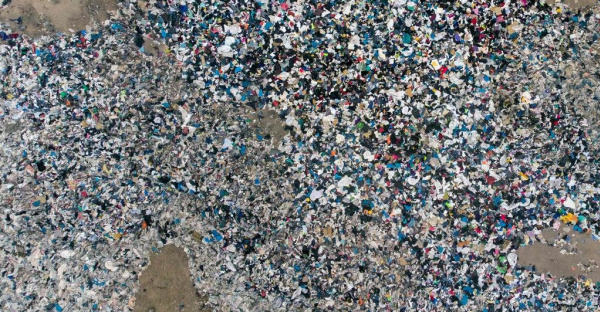Stop and think
Stop your devices and think! We will not take part in the Black Friday madness. We said it in 2020, and we repeat it now; in 2021.
We are not aligned with the hyper-consumerist vision promoted by this marketing trick.
First, Black Friday fosters the ‘shop & toss’ consuming habit we are trying to challenge. It is a hard fight, but we persist.
How many times have we heard friends say: “This dress is cheap, I’ll wear it once and throw it away!”
Just imagine the exponential growth of the effect of this short-sighted attitude during the Black week. Scary! And what’s more horrible is that those kinds of people are not open to reconsidering the way they consume. They barely see it.
Manipulated by advertising, people buy things they don’t even need. And those products, clothing included, end up quickly in the garbage. Surely, as we do, you still have in your head the images of the landfill in the Chile desert, a nightmare getting bigger and bigger. But perhaps people will only stop once garbage knocks directly on their doors.
Stop! Who benefits from Black Friday?
Also, Black Friday is just another opportunity to support corporations. They are the only ones who can afford the cost of it. If they applied reasonable mark-ups, there wouldn’t be the need for people to wait for special offers in order to purchase a product.
For independent retailers, those crazy offers aren’t viable unless they use the same corporations’ tricks.
Impulsive buying – overconsumption and rapid discarding. Never-ending needs for unsatisfied people. Black Friday is convenient for corporations, not for people.
Instead, we encourage intentional buying as a conscious lifestyle alternative. Buy things when you need them. Or when you find something meaningful. Having fewer things but better quality is a choice that brings value to our life.
During Black Friday, stop your devices and think!
